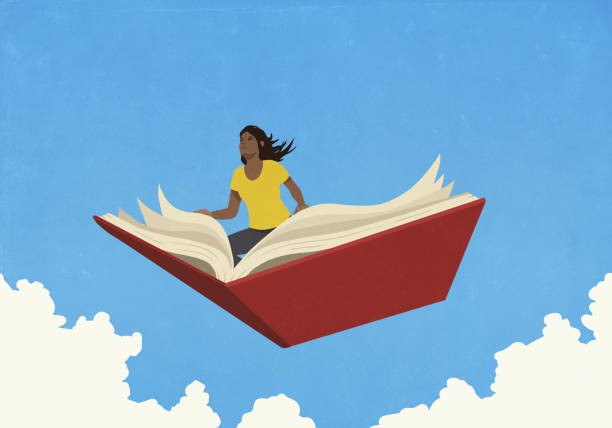7 Life Lessons We Can Learn from Vatsal Patel's Storybooks

Strong 8k brings an ultra-HD IPTV experience to your living room and your pocket.
Vatsal Patel is great at telling stories that have real-life events, humor, love, and lessons. The way he describes characters feels like he's talking about our struggles.
Vatsal Patel's storybooks reflect his skill at telling various stories of people from different backgrounds and experiences. His writing makes it easy to relate, and it easily tugs at your heartstrings and can be quite emotional at times. However, in his books, he included many life and love lessons.
7 Life Lessons to Learn from Vatsal Patel’s Storybooks
Storybooks are a great way to learn wisdom and pass life’s greatest challenges. Vatsal has written characters with qualities, experiences, or personalities that mirror our or the traits we aspire to possess. Let’s take a look at them:
1. Facing Conflicts and Confrontations
We, humans, are afraid of conflict. The fear of rejection stops us from standing up for ourselves and confronting others. Similarly, Rudra, in Vatsal’s storybook Rising of an Indian Virgin, used to avoid conflicts and tough situations. As the story goes on, he faces uncomfortable truths and challenges head-on. This overcoming of fear results in personal growth. His story is a great lesson: fruitful growth comes from facing problems instead of avoiding them. You can read this real-life event-based approach to realigning conflicts.
2. The Courage to Choose Love
People crave certainty. We want to know what will happen, what to believe, and how to live. However, this desire denies some of us the depths of love. That's because love brings uncertainty and difficult decisions. In another one of Vatsal Patel's storybooks, Rudra faces a dilemma as he must choose between Pavati and Maithili. Rudra's inner conflict reflects common struggles in life, where we must decide between the safe and familiar versus the uncertain and difficult paths.
3. Trials Come and Go, but Loyalty Remains
Another important lesson in Vatsal Patel's storybooks is about the enduring power of loyalty amidst trials. Belle and Maya, two loyal dogs, go on an adventure to find love for their owner, but they encounter many challenges along the way. They confront various adversaries who plan to harm the gentle lady they defend. Nonetheless, they remain loyal to her and focus on the mission to fill the void of love in the owner’s life.
4. Identifying Toxic Traits
Being able to spot warning signs in relationships is essential for our emotional well-being. Vatsal Patel’s storybook, Belle and Maya, skillfully highlights the importance of recognizing manipulative and untrustworthy behavior. Through their journey, readers learn valuable lessons about identifying toxic traits like manipulation and dishonesty in men. You will also learn how you can let go of people who deteriorate your well-being. This empowers them to make healthier choices in their relationships.
5. Keeping the Balance
Balancing personal dreams with family responsibilities is hard to grapple with because they often pull in opposite directions. Pursuing our goals demands time, effort, and focus, while family commitments require attention, care, and presence. In Dr. Rudra's narrative, we see firsthand the challenges of juggling career ambitions with the needs of loved ones. Patel's portrayal encourages us to reflect on our struggles with maintaining the balance between pursuing our dreams and fulfilling our familial duties.
6. Understanding the Generational Gap
Our elders cling to tradition and stability, while younger ones embrace change and new ideas. These differences can lead to misunderstandings and conflicts, especially when it comes to technology, social norms, and values. In Vatsal Patel’s storybook Innocentes, he explores this dynamic by discussing the tensions between traditional values and contemporary ambitions. Through humor and drama, readers gain insights into bridging the gap between generations and building mutual understanding across cultural boundaries. The characters represent a larger societal discourse on changing values and aspirations.
7. Accepting Cultural Identity
Fear of ridicule and a desire to fit in society persuade many of us to hide our cultural identity. However, connecting with our background gives us a feeling of belonging and security. In "Rising of an Indian Virgin," Rudra is coming to terms with his Indian background, while Pavati accepts her Navajo heritage. Their story teaches that love goes beyond cultural differences, making their bond stronger. Even though Rudra and Pavati are from different backgrounds, they learn to appreciate each other's uniqueness, inspiring others to connect on a deeper level.
Wrap Up
In Vatsal Patel's storybooks, readers find tales filled with everyday struggles, love, and important lessons. Through relatable characters and engaging plots, Patel teaches valuable wisdom that guides us. His stories connect with our real-life challenges, from facing conflicts to choosing love amidst uncertainty.
His books also address serious issues and provide a platform for discussing various issues that no one should have to face.
Find out how words can change your world. Order books now!
Note: IndiBlogHub features both user-submitted and editorial content. We do not verify third-party contributions. Read our Disclaimer and Privacy Policyfor details.



